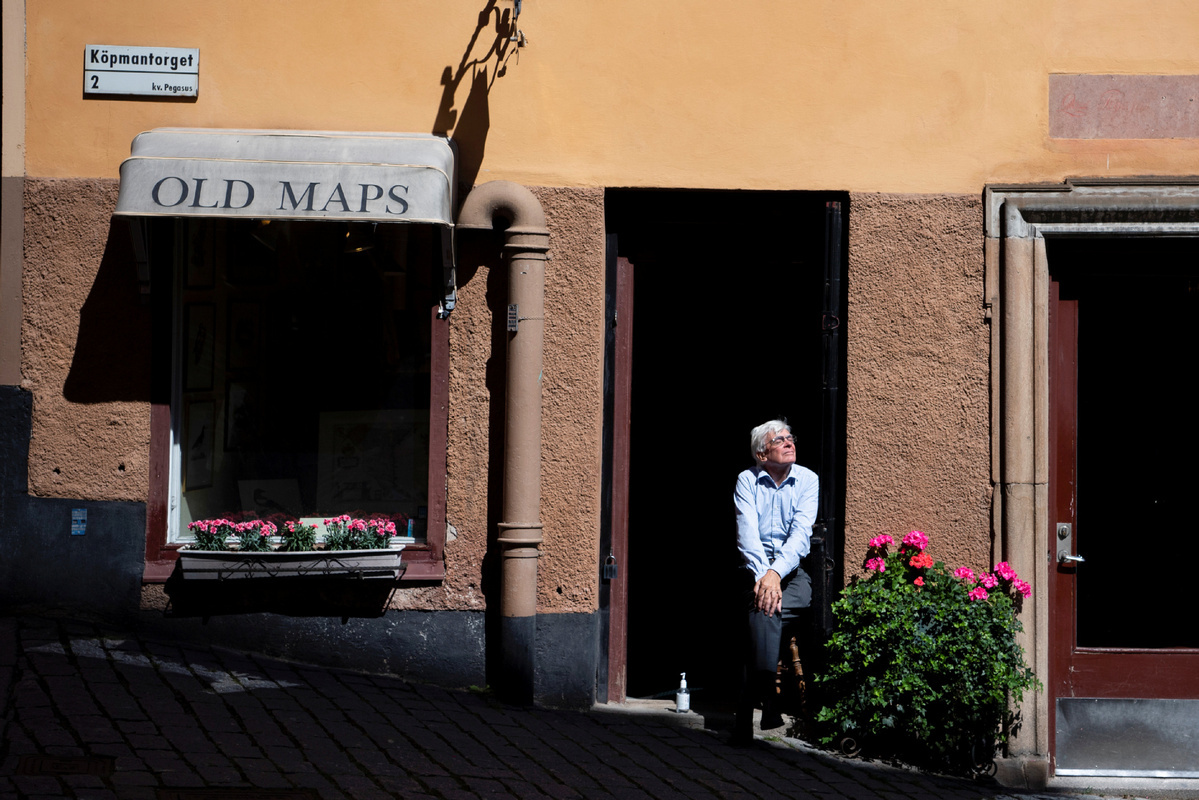STOCKHOLM - Deaths at Sweden's nursing homes during the COVID-19 epidemic could have been prevented if demands for reforms raised nearly a decade ago had been met, Minister for Health and Social Affairs Lena Hallengren said on Wednesday.

A shop owner enjoys the sun outside his empty shop, amid the coronavirus disease (COVID-19) outbreak, in Gamla stan, the old town in central Stockholm, Sweden July 22, 2020. (Photo: Agencies)
Responding to researchers' claims that a lack of resources and insecure employment terms within Sweden's elderly care system contributed to a failure in protecting the elderly, Hallengren told Radio Sweden that she agreed and that the epidemic had revealed "major flaws" in the elderly care system.
Marta Szebehely, a professor emeritus in social work at Stockholm University who specializes in elderly care research told Radio Sweden: "The system's resources have not increased as the number of elderly people has gone up and therefore there was a lack of preparedness when the coronavirus arrived and that could have been avoided had there been higher staffing levels and fewer tem
ps. Those are the two most significant aspects here."
Hallengren agreed, noting that a new effort to raise the quality of care will involve offering permanent positions to those who currently rely highly on temporary contracts, as well as extending further education opportunities so they can obtain auxiliary nurse certificates and thereby also earn higher salaries.
However, Mats Thorslund, a professor in social gerontology at the Karolinska Institute in Stockholm, said the major challenge is not how to shore up today's elderly care system but rather how to guarantee a functioning system in the future.
"If we are to keep today's standard in, say, 10 years' time when we will have far more elderly people who are in the final stages of life and who will need both medical and social care, then the budget needs a boost of around 50 million SEK (5.78 million U.S. dollars) per year, at the very least," said Thorslund, who is part of the Swedish government's newly appointed "Corona Commission", Radio Sweden reported.
Figures from the Public Health Agency of Sweden show that as of Wednesday, there have been 85,411 confirmed cases of COVID-19 in Sweden, with 5,802 deaths.
According to figures from the National Board of Health and Welfare, until July 20 when 5,500 deaths had been registered, nearly three quarters, or 47 percent, of fatalities were among individuals living in elderly care facilities, whereas 26 percent were among those receiving home care.


